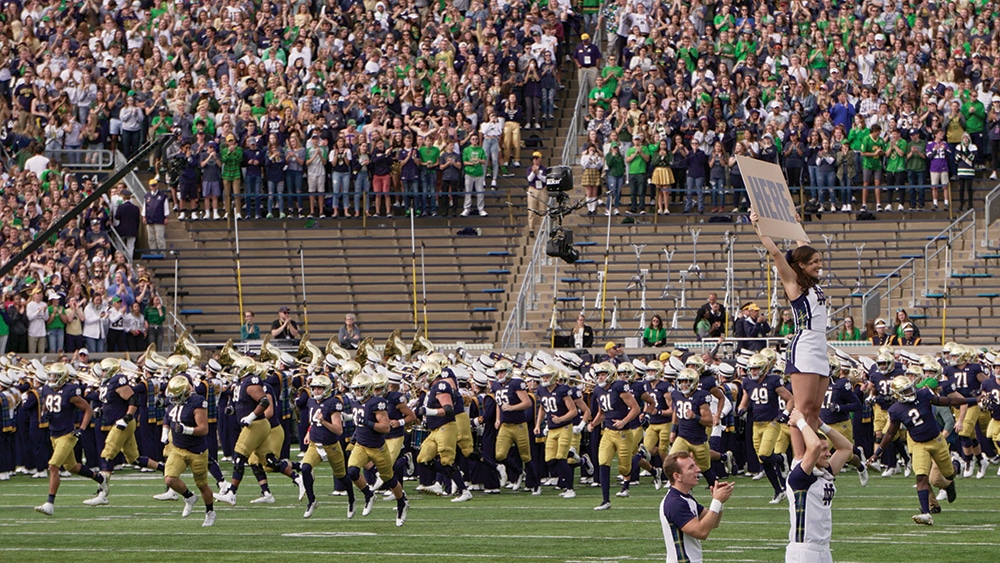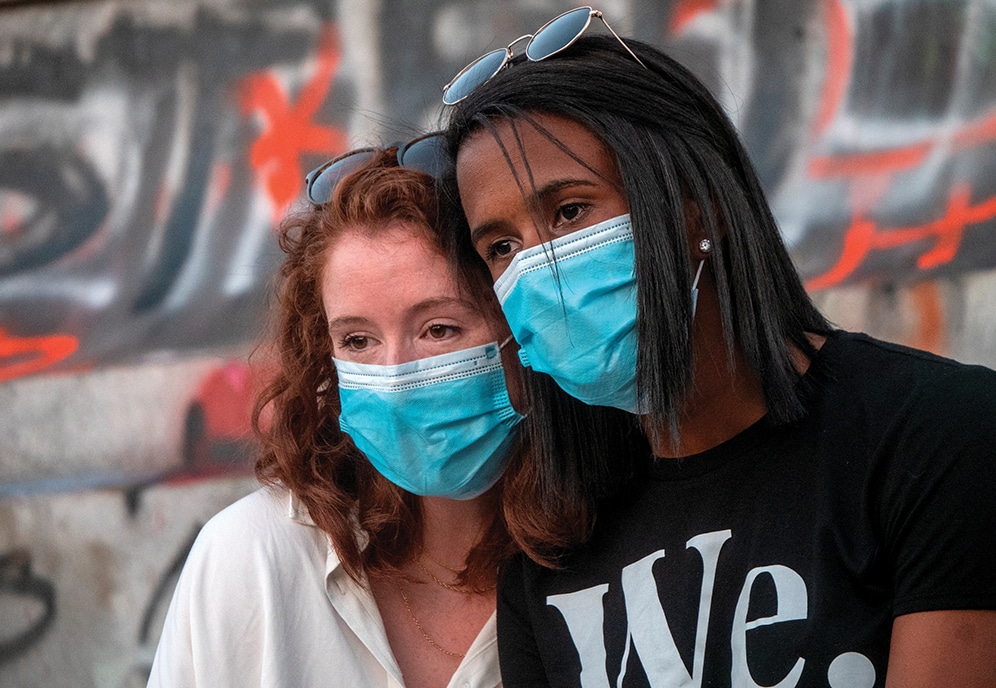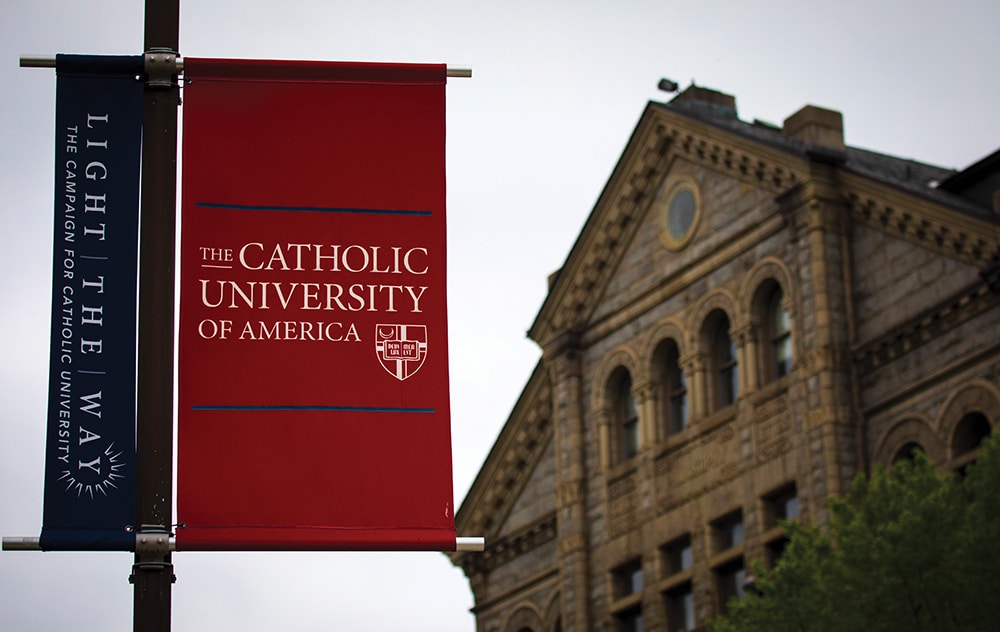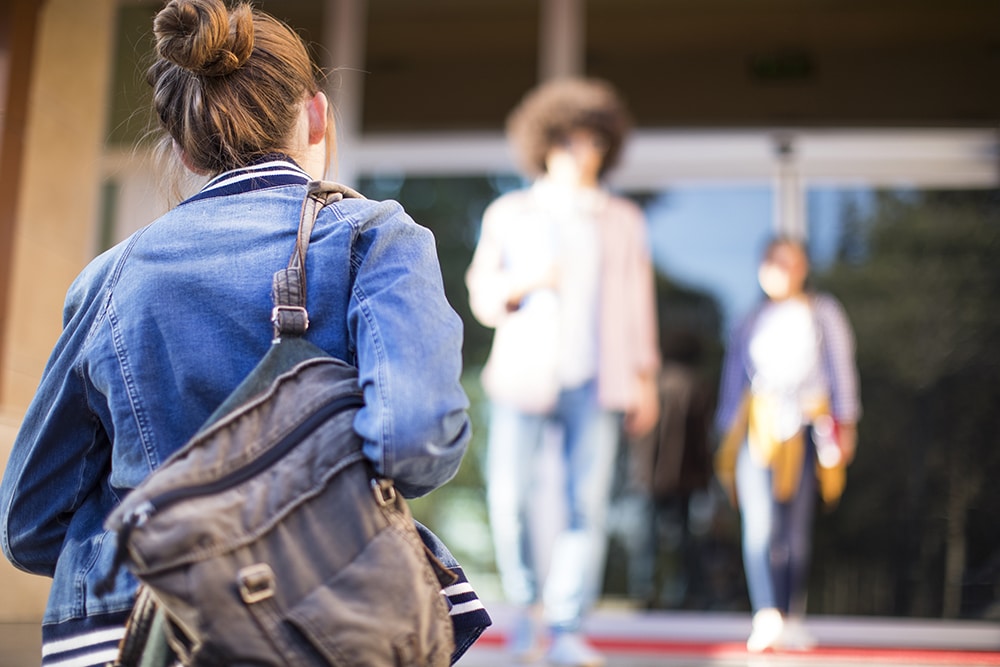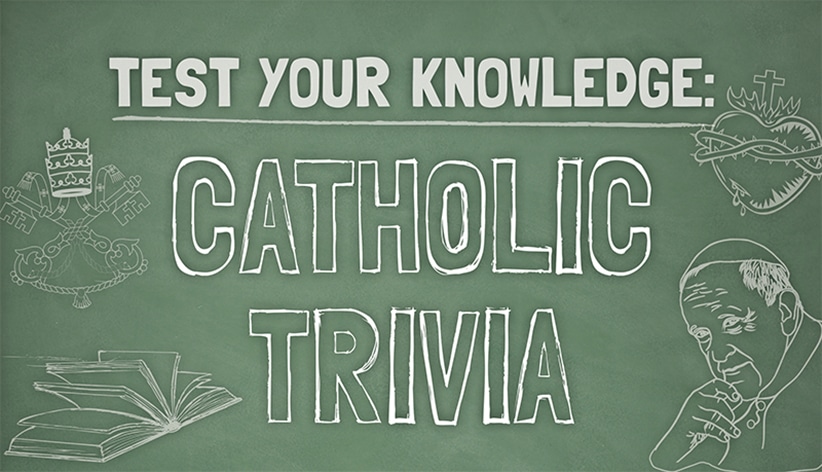Without question, the 2020 season will be the most unusual for William Rychel’s football team at St. Thomas University in Miami Gardens, Florida.
“We’re social distancing in our locker rooms,” said Rychel, who told Our Sunday Visitor that players will have their temperatures taken before every practice and game. Every night, the student-athletes will need to log into a smartphone app to be screened for COVID-19 symptoms.
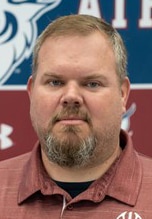
“With the football team, we’re going to have them walking into the locker room in four different groups to maintain social distancing,” said Rychel, the athletic director and head football coach at St. Thomas.
“There’ll be three to four lockers between each kid, social distancing between groups. They’ll be wearing masks in the locker room, as well as while they’re walking from place to place on campus,” Rychel said.
Read other stories in our special college section here.
The novel coronavirus pandemic has upended university life, but it is having a particularly disruptive effect on college athletics. At hundreds of universities and colleges around the country, many athletes will not participate in fall sports this year because several Division II and Division III schools have already canceled all athletic events this year. Still, many will play with safety precautions and protocols in place.
‘All in this together’
The NCAA recently announced that each of its divisions could make its own decision whether to cancel postseason tournaments amid the pandemic. It also is allowing student-athletes to opt out of the current season because of concerns about contracting COVID-19.
Top Division I schools, meanwhile, are setting ambitious football schedules this fall, including plans to move ahead with the blockbuster College Football Playoff tournament. As most major conferences opted to play in-conference games only, the independent University of Notre Dame firmed up its affiliation with the Atlantic Coast Conference and will play an 11-game season, including 10 games against ACC opponents. The Irish kick off the season Sept. 12 against Duke.
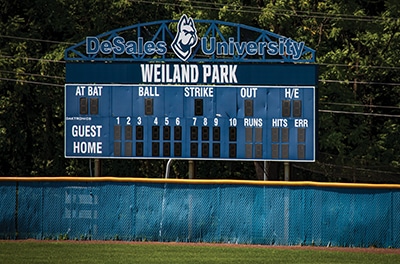
Other Catholic universities with high-profile Division I sports programs also are looking forward to athletic competitions this year, even amid the uncertainty and possibility that some contests will be postponed or canceled if players test positive for the virus or other schools pull out of tournaments and regular season games altogether.
In a Zoom meeting this spring with athletic fans, supporters, university trustees and alumni, Athletic Director Mike Roth of Gonzaga University vowed that he and his staff would be prepared for whatever the future held in terms of the pandemic response.
“Our future is determined by a shared determination and vision that we are all pulling in the same direction to navigate through this process. … We’re all in this together,” Roth said, according to a story on the Gonzaga University website.
“We anticipate our varsity teams will compete, but details surrounding safety requirements and fan participation are still being finalized,” Augustinian Father Peter M. Donohue, the president of Villanova University, said in a recent video message to the campus community.
Father Donohue also said that all club and intramural sports at Villanova are currently on hold, and added that the university’s athletic staff is “looking at safe ways to operate and manage the university fitness centers and recreational spaces.”
Villanova and several other Catholic universities compete in the Big East Conference, which has set a policy for this fall that sports schedules will not include any nonconference competition. Mike Cragg, the director of athletics at St. John’s University in New York City, said in a prepared statement that he supports that policy, which he said will help ensure the member university teams can compete in a safe environment in accordance with local and state guidelines.
“During these challenging times, the entire Red Storm Athletic Department remains deeply committed to providing top-tier support services for our student-athletes to achieve excellence in the classroom and, eventually, in competition,” Cragg said.
‘Life lessons’
In the Sun Conference, which is affiliated with the National Association of Intercollegiate Athletics (NAIA), the fall athletic season is proceeding under strict protocols to mitigate the risks of spreading COVID-19.
“We’ve developed our protocols and plan on playing our seasons within the guidelines that the conference and the NAIA have set. But everything in this day and age changes daily. Whatever happened yesterday may not be what’s going on tomorrow,” said Rychel, who noted that the current phase of COVID-19 restrictions in south Florida would currently prohibit any fans from watching games at St. Thomas University.
“The hope is that things will begin to change by the time the winter season comes around,” Rychel said, adding that the next phase of reopening, which is contingent on the number of local coronavirus cases and hospitalizations, would permit 50-percent fan capacity at athletic contests.
“Sports are a big part of the student-athletes’ lives,” Rychel said. “It’s a big part of their college education and their experience in college. You only have a certain amount of time in your life where you can be a student-athlete. And obviously, athletics teach life lessons.”
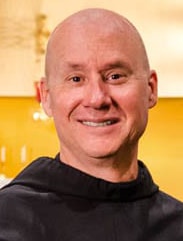
Franciscan Father David Pivonka, the president of Franciscan University of Steubenville in Ohio, agreed, which is why he advocated for university athletics to continue this year.
“What I continually said is that I think it’s important that we continue to compete, because I
think that there is a value and an opportunity for growth in virtue and charity among
our young men and young women that takes place within athletics,” Father Pivonka told Our Sunday Visitor.
Franciscan University competes as a Division III school in the President’s Athletic Conference. Father Pivonka said some fall sports have been moved to the spring — and a few spring sports moved to the fall — to allow student-athletes some flexibility to compete this year.
“I came down on the side of ‘Let’s do anything we can to allow the students to have their experience of athletics,'” said Father Pivonka, who played baseball growing up. He added: “I think athletics is a great opportunity for learning virtue. If we can do something the students enjoy through athletics and help bring that about, I was very much in favor of doing that.”
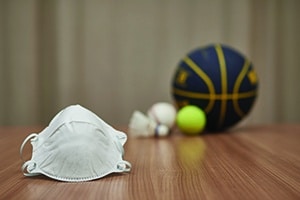
The pandemic has already created another character-forming crucible for St. Thomas University’s young football program, which is only in its second year of existence. Before the program’s first game last season, a hurricane in south Florida upended the team’s preparations.
“Nothing’s been normal here. Nothing’s been easy so far, but it is what it is,” said Rychel, who has had to prepare a young football team — freshmen formed the majority of last year’s squad — via virtual meetings and social distancing requirements in locker rooms.
“At the end of the day, though, none of that is going to be an excuse,” he said. “We’re going to prepare as we always do, and do what we can within the protocols we have in place to try to win as many football games as possible.”
Brian Fraga is a contributing editor for Our Sunday Visitor.

